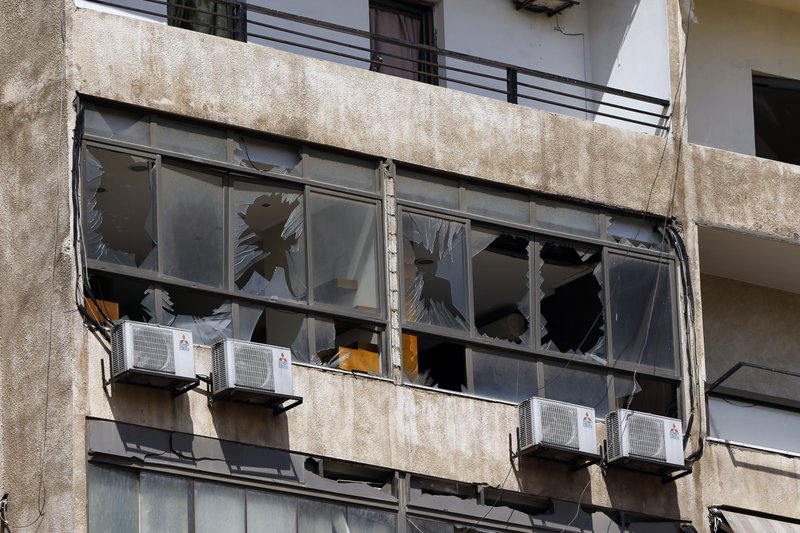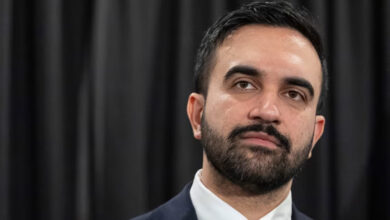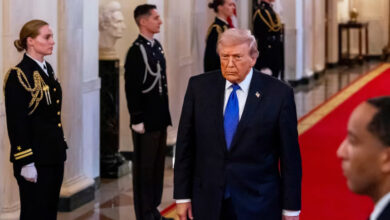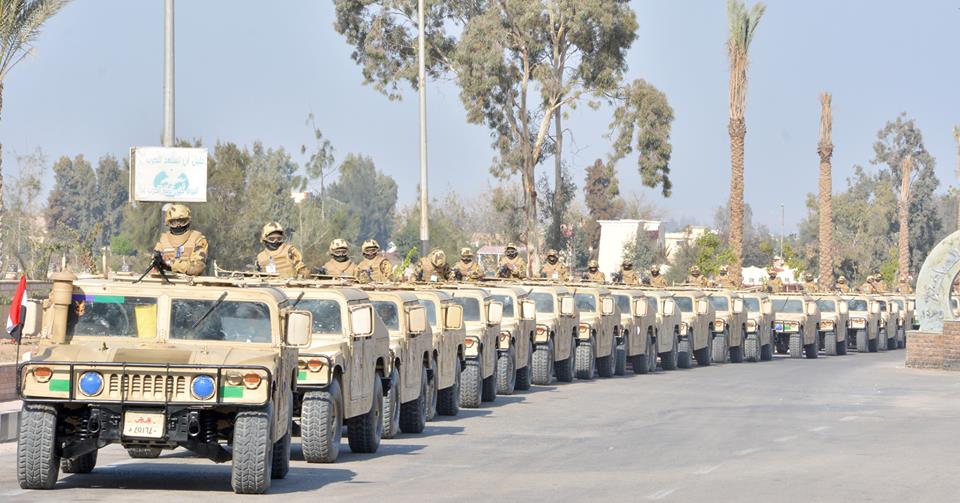
UNITED NATIONS (AP) — The U.N. Security Council warned Thursday that violations of the cessation of hostilities between Israel and Lebanon in the latter country’s south “could lead to a new conflict that none of the parties or the region can afford.”
The council warning came in a French-sponsored resolution adopted unanimously that extends the mandate of the 10,500-strong U.N. peacekeeping force in southern Lebanon, known as UNIFIL, until Aug. 31, 2020.
It was approved days after an alleged Israeli drone crashed in a Hezbollah stronghold in southern Beirut and after Lebanese army gunners fired Wednesday at Israeli reconnaissance drones flying in Lebanese airspace, heightening tensions between the two countries.
The Security Council urged all parties to “exercise maximum calm and restraint and refrain from any action or rhetoric that could jeopardize the cessation of hostilities or destabilize the region.”
UNIFIL was originally created to oversee the withdrawal of Israeli troops after a 1978 invasion of Lebanon. The mission was expanded after a 2006 war between Israel and Hezbollah militants so peacekeepers could deploy along the Lebanon-Israel border, to help Lebanese troops extend their authority into their country’s south for the first time in decades.
France’s deputy U.N. ambassador, Anne Gueguen, told the council after the vote that “UNIFIL is essential for the stability of Lebanon and the region, and must remain the guarantor of the cessation of hostilities between Lebanon and Israel.”
“At a time of great tensions it is essential for all parties to demonstrate the greatest restraint,” she said.
Kuwaiti Ambassador Mansour Al-Otaibi said negotiations on the resolution coincided with Israeli violations of Lebanon’s sovereignty and airspace, and “the Security Council should send a strict message to compel Israel to stop such violations.”
The resolution reiterates the council’s call for Israel and Lebanon to support a permanent cease-fire and for the accelerated deployment of Lebanese forces in the south and the country’s territorial waters. It asks Secretary-General Antonio Guterres and the Lebanese armed forces for “precise timelines” for those deployments.
The council again urged all countries to enforce a 2006 arms embargo and prevent the sale or supply of weapons to any individual or entity in Lebanon not authorized by the government or U.N. force — an implicit criticism of the suppliers of weapons to Hezbollah.
Acting U.S. Ambassador Jonathan Cohen told the council the United States “remains steadfast in our commitment to UNIFIL and to Lebanon’s security, stability and sovereignty.”
Implementation of the arms embargo “remains a top priority,” he said, and in the coming year the U.N. “needs to take serious steps” to increase reporting and verify implementation of the arms embargo.
Cohen also called for UNIFIL’s unimpeded and timely access to the entire U.N.-drawn Blue Line boundary between Israel and Lebanon.
Eight months after the discovery of suspected Hezbollah tunnels, he said UNIFIL still can’t access the tunnels on the Lebanese side “because Lebanese leaders have not directed their armed forces to investigate suspected sites” with the U.N. peacekeepers.
“The fact that UNIFIL cannot access all of the areas within its area of operations leads us to believe that it is time to re-examine troop strength and begin the process of putting the mission on a trajectory toward right-sizing,” he said.
The resolution urges all parties “to ensure that the freedom of movement of UNIFIL and UNIFIL’s access to the Blue Line in all its parts is fully respected and unimpeded.”
Israeli Ambassador Danny Danon said the resolution sends “a clear message to the Lebanese government: restrain Hezbollah.”
“The terrorist organization’s grip on southern Lebanon is intended to only harm the state of Israel and endanger the entire region,” Danon said. “Israel will not accept such a reality, and calls on the international community to act resolutely against the Iranian proxy in Lebanon.”
By EDITH M. LEDERER
Photo: Broken windows are seen on the 11-floor building that houses the media office in a stronghold of the Lebanese Hezbollah group in a southern suburb of Beirut, Lebanon, Sunday, Aug. 25, 2019. Two Israeli drones crashed in a Hezbollah stronghold in the Lebanese capital overnight without the militants firing on them, a spokesman for the group said Sunday, saying the first fell on the roof of a building housing Hezbollah’s media office while the second landed in a plot behind it. (AP Photo/Bilal Hussein)




